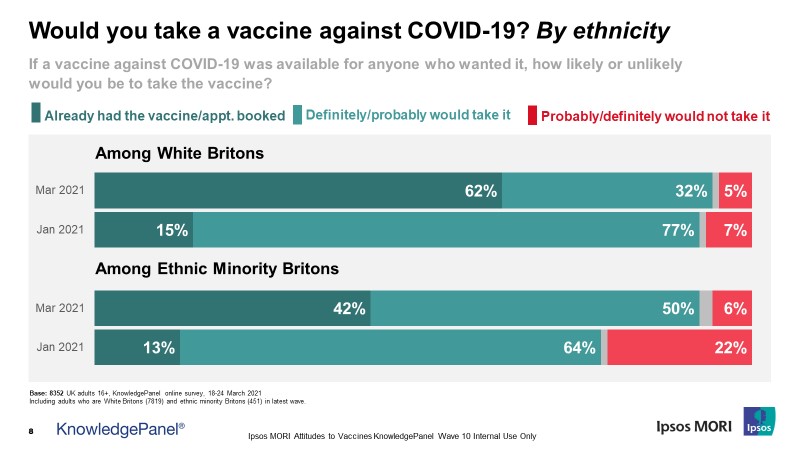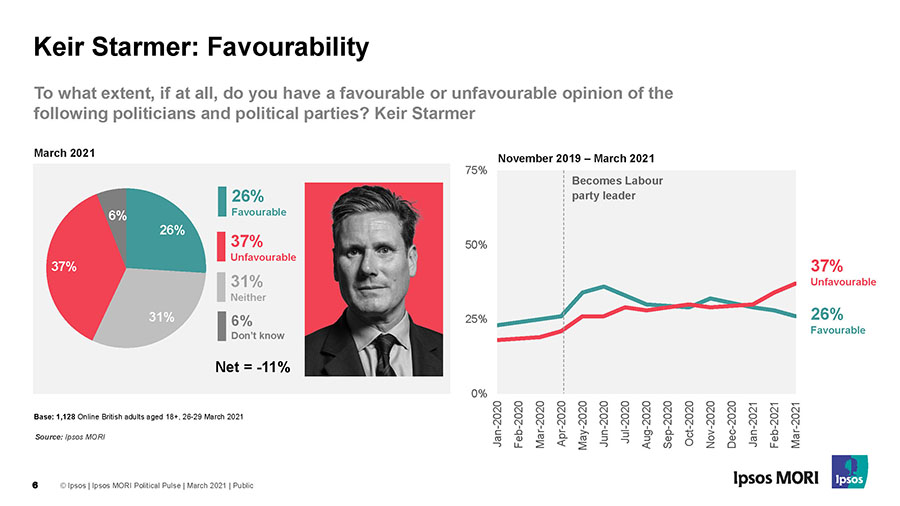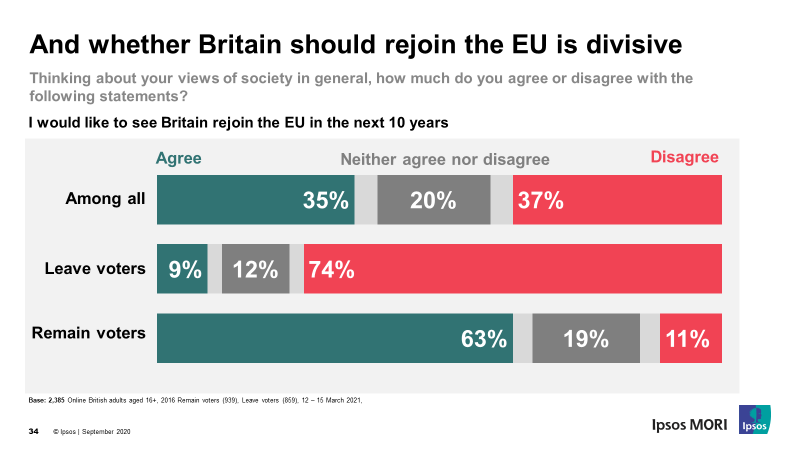Ipsos Research Highlights - 16 April 2021
Findings from latest COVID-19 REACT-1 study published
Our latest findings from the REACT study with Imperial College London show that infections have fallen by 60% since February with only 1 in 500 people infected. During the latest round in March, the study estimates an R number of 1 in England, so it's important to cautious as we continue on this journey out of lockdown. Areas of higher prevalence remain in parts of the North West and Yorkshire.
Vaccine confidence grows month-on-month in latest Ipsos KnowledgePanel poll
Willingness to take a COVID-19 vaccine is up, only 6% now say they would not take the COVID-19 vaccine, compared to 14% who said the same in December. It’s positive to see the most dramatic improvement is among ethnic minority Britons as 92% now say they would take the vaccine, up from 77% in January. Further progress has also been made among young adults (up 6 percentage points from to 86%) and adults from the most deprived areas in the UK (up 8 percentage points from 81%-89%).

One year in, more Britons unfavourable towards Keir Starmer than favourable
Keir Starmer's favourability has dropped as 37% of Britons are unfavourable towards him. Whilst Britons are more likely to think he will change the Labour Party for the better (30%) rather than worse (13%), a clear majority (57%) think he will make no difference. He still has a lot of work to do as a third of the British public still have no opinion on him and the Labour Party’s ratings are virtually unchanged since March 2020 when Jeremy Corbyn was leader. Boris Johnson leads Keir Starmer in a important traits such as ‘good in a crisis’ (Johnson +22 pts) and being a ‘strong leader’ (Johnson +14).

Life after Brexit – Britons predict more expensive food prices and falling EU migration
When it comes to Brexit, Britons are still more likely to say it will have a negative impact on number of areas, including rising food prices (61%) and holidays to countries in the EU (55%). While transportation (58%) is the sector most likely to be negatively affected by Brexit followed by the agriculture and automotive sectors. Although it has fallen slightly Europe is still seen as the most important relationship to the UK compared to the US or Commonwealth. However, Britons are split of whether Britain should re-join the EU.

In other news
Ahead of the Holyrood Election in May, Ipsos Scotland will be keeping up with the research, polls and trends.
As lockdown restrictions begin to ease, 41% of Britons think the UK is heading in the ‘right direction’ (+5 pts from February) and 36% think things are heading in the wrong direction.
Two-thirds of parents say during the last few lockdowns, home schooling went well, it went very or well, but 31% disagree.
three-quarters of British adults say that Britain’s NHS is one of the best in the world (75% agree), while over six in ten UK adults say they are satisfied with the running of the NHS nowadays (63%).
As ever, please do let us know what you think, and I hope you find something to interest you.
Ben Page
Chief Executive, Ipsos
[email protected]

